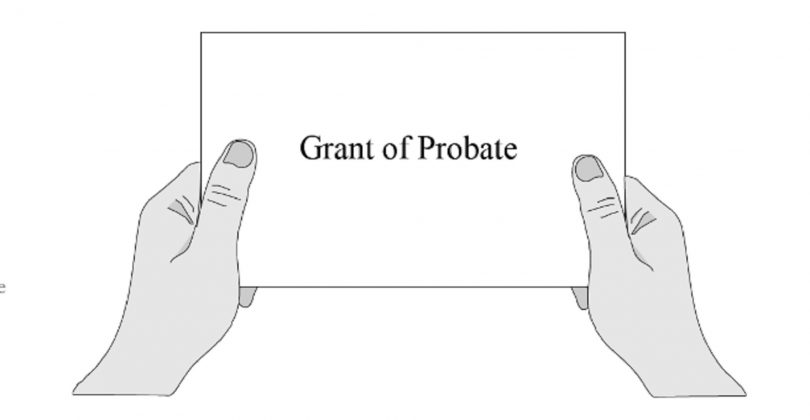Table of Contents
Grant of probate application involves making formal requests in a court to handle the estate of the decedent.
The process is similar with or without a will, but for the latter, it is called a grant of letters of administration.
Besides giving the go-ahead in estate distribution, the grant also serves as a legal validation of a will or the probate process.
This guide looks into the process of acquiring a grant with or without a will and the responsibilities it brings to executors and administrators.
Key Takeaways
- Estate executors must seek legal authority to proceed with heir search and distribution.
- Conducting a thorough heir search is paramount, to avoid penalties incase a missing or undetailed beneficiary shows up after the estate is distributed.
- If you need more information regarding heir search, estate settlement, or the whole process, contact Record Click for help.
What is A Grant of Probate?

Grant of Probate confirms a will or estate management
A grant of probate is a court order legalizing the court process and identifying an individual as the executor of an estate.
The grant is the court’s acknowledgment of the will’s validity, thus allowing the named executor to proceed with estate settlement.
This executor will be solely responsible for sorting out the assets per the directions on the will and ensuring every heir gets their share.
Do I Need A Grant in Intestacy Succession
Suppose the decedent didn’t leave a will (dying intestate). In that case, intestacy laws in most states dictate that the court follow the order of inheritance when choosing an administrator.
In most cases, the order of preference may prioritize spouse, children, parents, siblings, and so on.
Documents needed for a successful application include original copies of certificates, valid will, and identity cards.
What’s Next After Grant of Probate?

The grant confirms the executor or administrator
After the grant, the executor or administrator is expected to handle the assets according to the will or the intestacy laws.
The primary role includes gathering all the assets left behind and ensuring they detail everything. Failure to discover or detail any estate the decedent leaves means it won’t be accounted for. As a result, the beneficiary may not receive their entire inheritance.
Executors must avoid this mistake at all costs, as we have seen probate courts holding executors personally accountable for such mistakes, however genuine they may look.
Therefore, being an executor means putting your shoulders under this burden and conducting thorough searches to detail every asset left behind.
The task can be daunting, especially when you have insufficient information on the deceased’s assets or when the assets scatter worldwide.
In addition to finding and detailing any assets left behind, the executor must conduct a thorough heir search to ensure that all beneficiaries are accounted for.
This responsibility also proves troublesome, especially when beneficiaries go missing or are unknown. In this case, the executor is tasked with searching for them in whatever way possible. Common search methods include include consulting professional genealogists, posting newspaper ads, and making general inquiries.
No executor wants to pay from their own pocket when a missing or undetailed beneficiary shows up after the estate is distributed. So, conducting a thorough search is paramount because the buck stops at the executor.
If you’re an executor of an estate whose heirs are unknown or missing, you don’t need to search alone; consult our professional specialists to help you unravel any mystery.
We’re ready to take full responsibility for requesting a Grant of Probate and handling any legal or estate settlement matter.
READ MORE: Record Click’s Heir Research Services, Costs, And Expectations.
How To Check Grant of Probate

Check Government websites
If you want to access a will or believe that a grant was already provided, you can check public records.
Normally, when a will goes to probate, it becomes a public document, and so does the respective grant.
Most documents become publicly accessible 14 days after the registry issues them. A straightforward way to find an old grant of probate is through government websites.
Do I Need a Grant of Probate When There’s a Will?

Grant of Probate When There’s A Will
Not every estate distribution requires a grant of probate. However, having a valid will should not be interpreted as a replacement for a grant.
You may still need to apply even if you have a valid will. The person designated as the executor in the will should be the one applying. A grant of their application will not only to prove the will but also to commence estate distribution among beneficiaries.
Similarly, the next of kin in an intestate case is responsible for an application for a grant of letters of administration.
Under What Circumstances May I Not Require a Grant of Probate?

it depends on the amount of the estate
The estate value and nature are the determinants of whether you need a grant of probate or not. You may not need to apply if the deceased worth is not substantial.
Unfortunately, we don’t have an exact definition of unsubstantial estate, and it all depends on local laws and financial institutions. However, most cases must involve an estate worth over $20,000 to undergo the process.
Otherwise, you may need to deal with the small estate procedure rather than probate.
If the estate was held jointly with another living owner, the Rule of Survivorship dictates that it automatically pass to them without grant.
However, you may need to apply for a grant of representation if the joint estate has the decedent in their sole name or if other assets are of significant value.
Conduct a Flawless Probate Search
Probate processes often involve professional genealogists and attorneys ensuring each heir gets their share.
So, if you need assistance in heir search, probate search, estate settlement, and the like, contact Record Click for budget-friendly offers, assured accuracy, and formidable court presentation.







